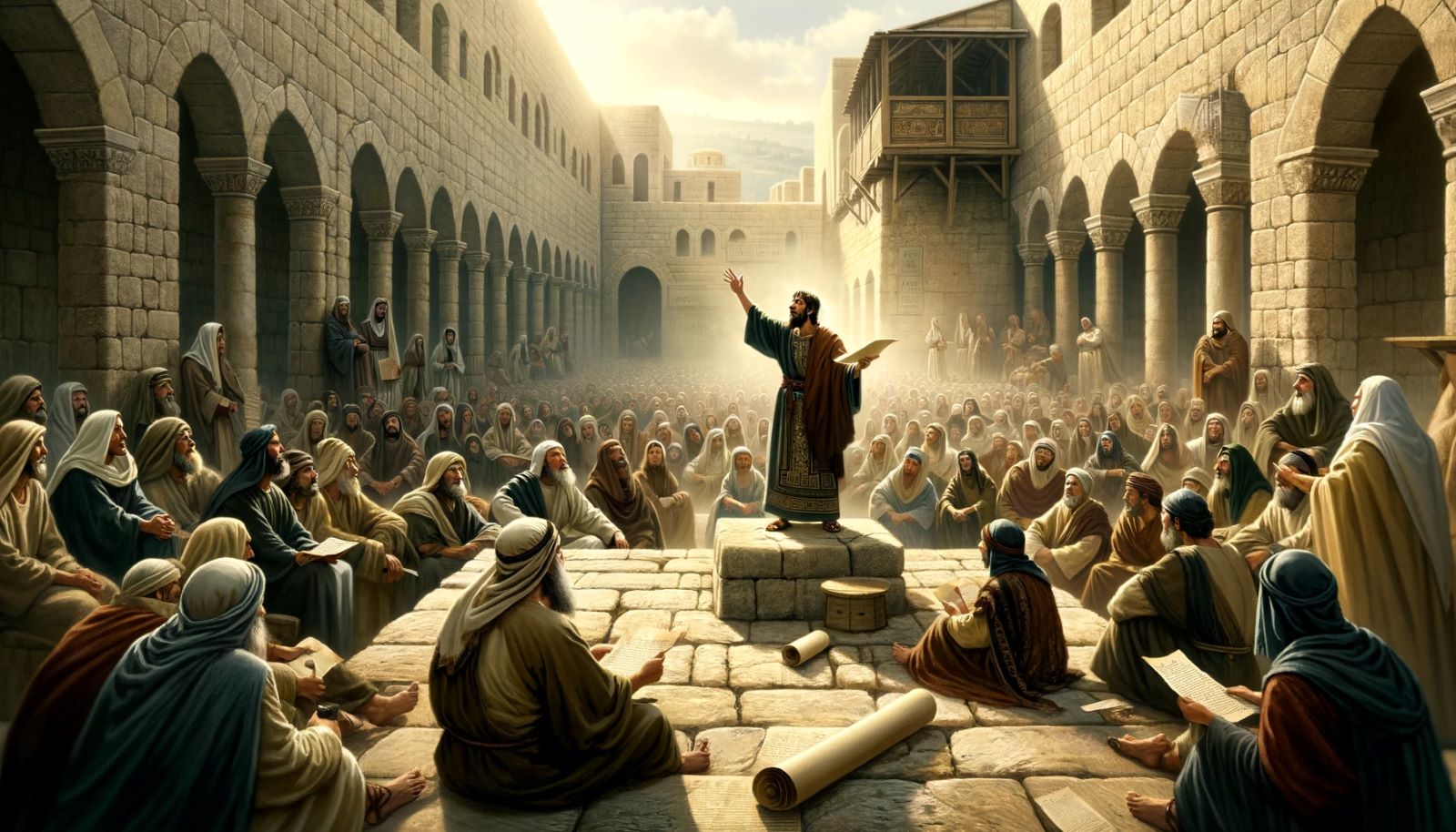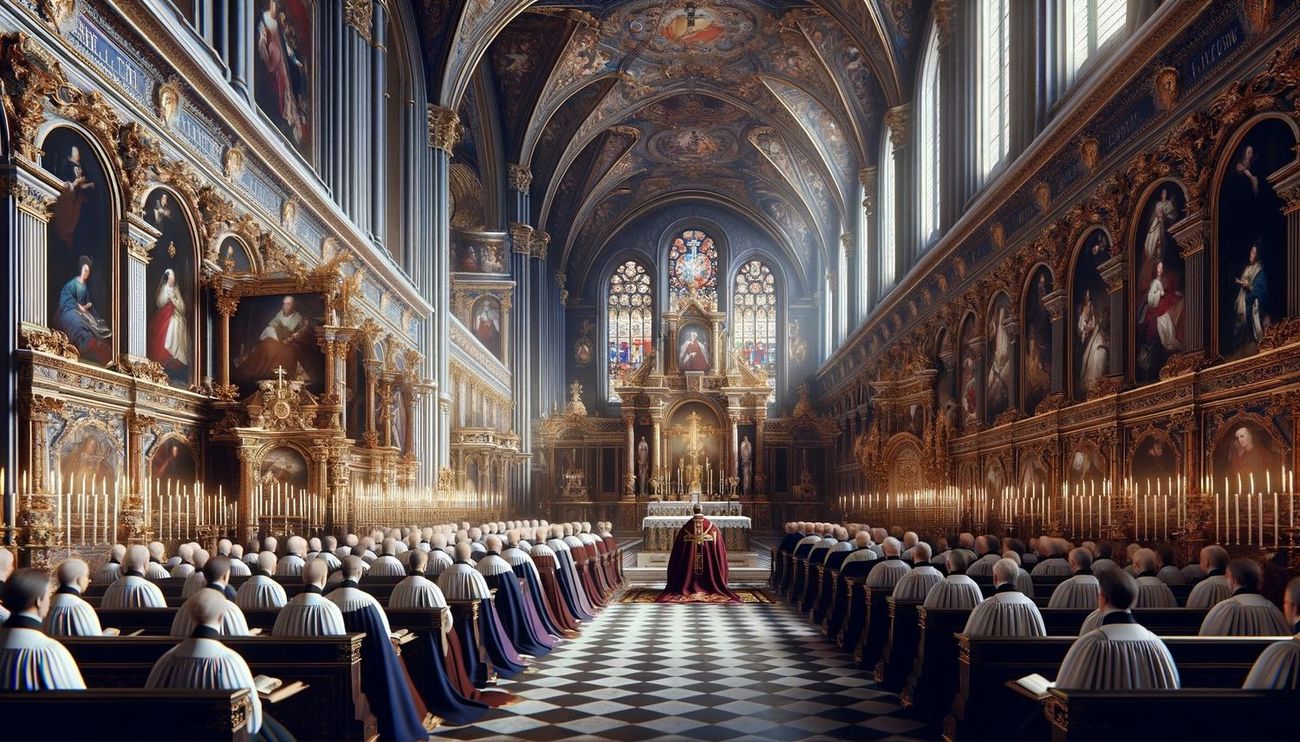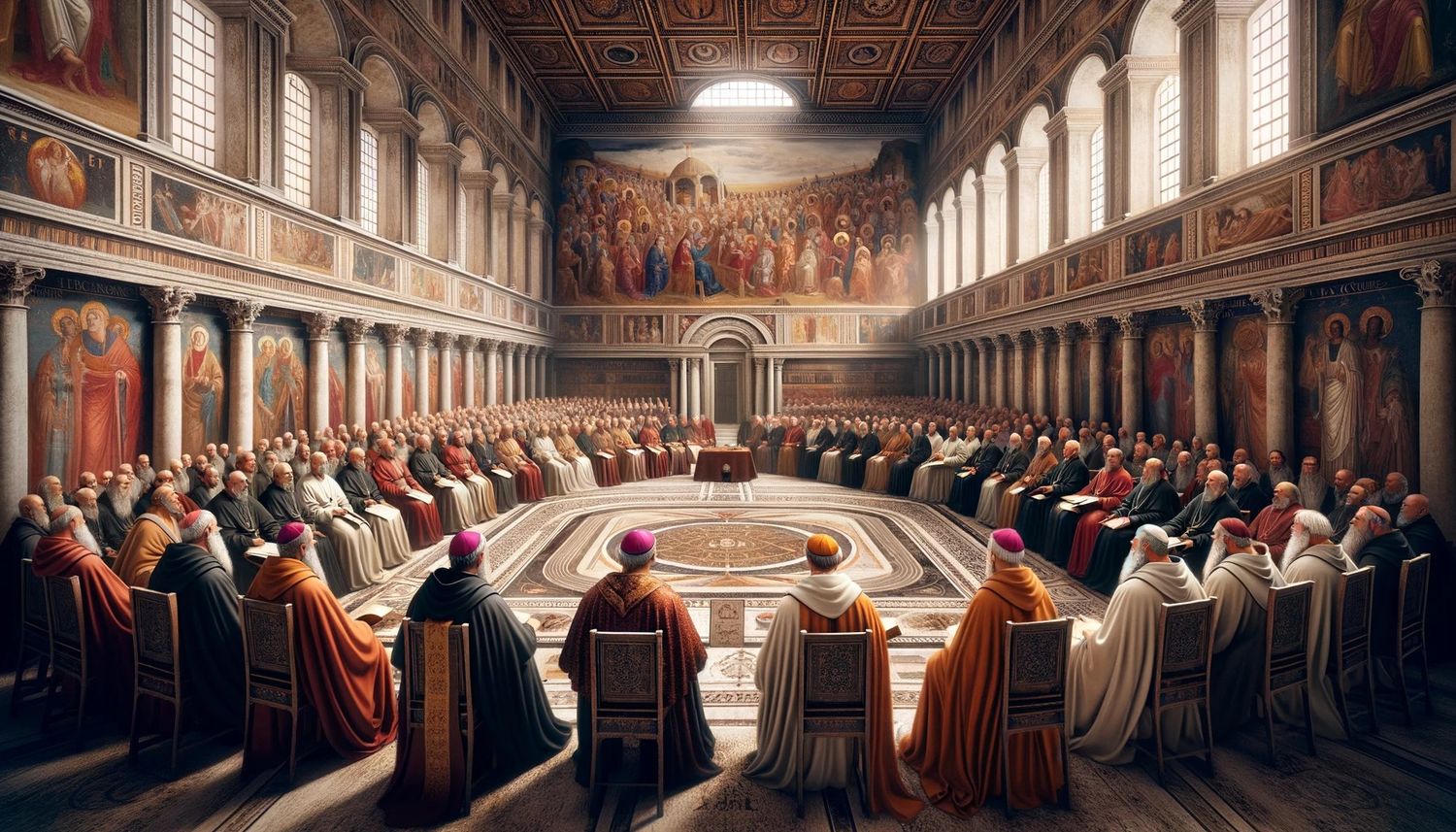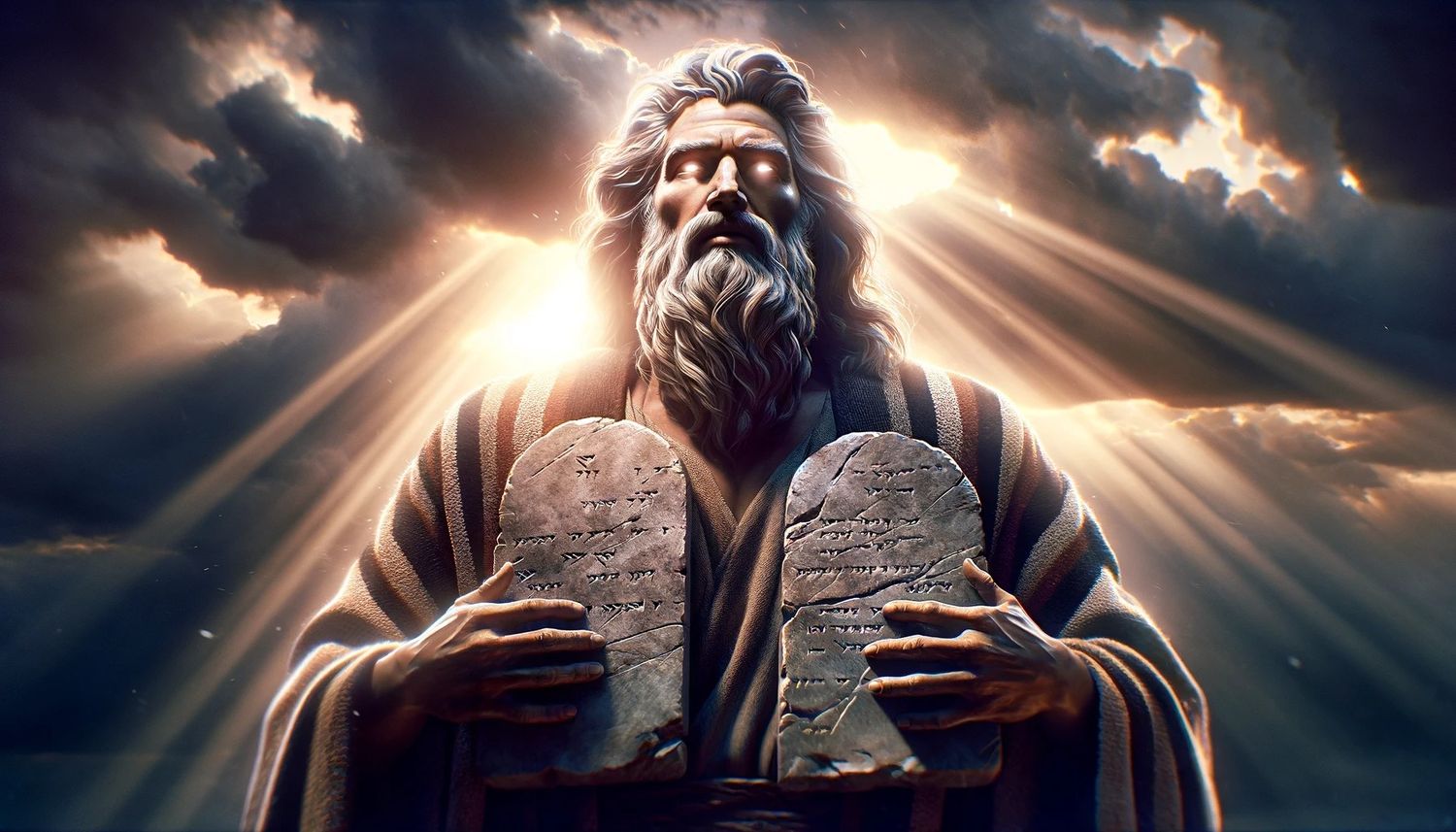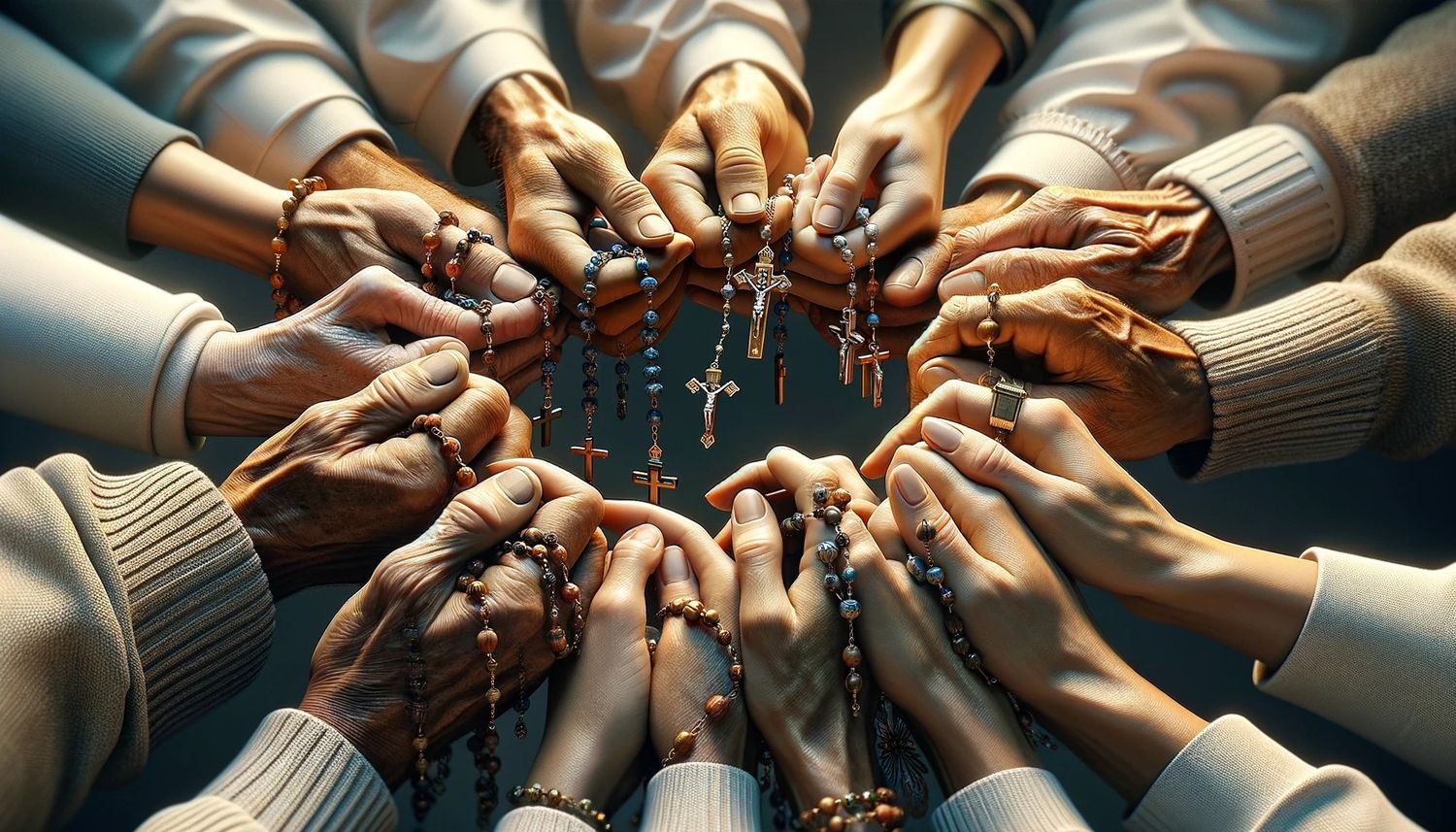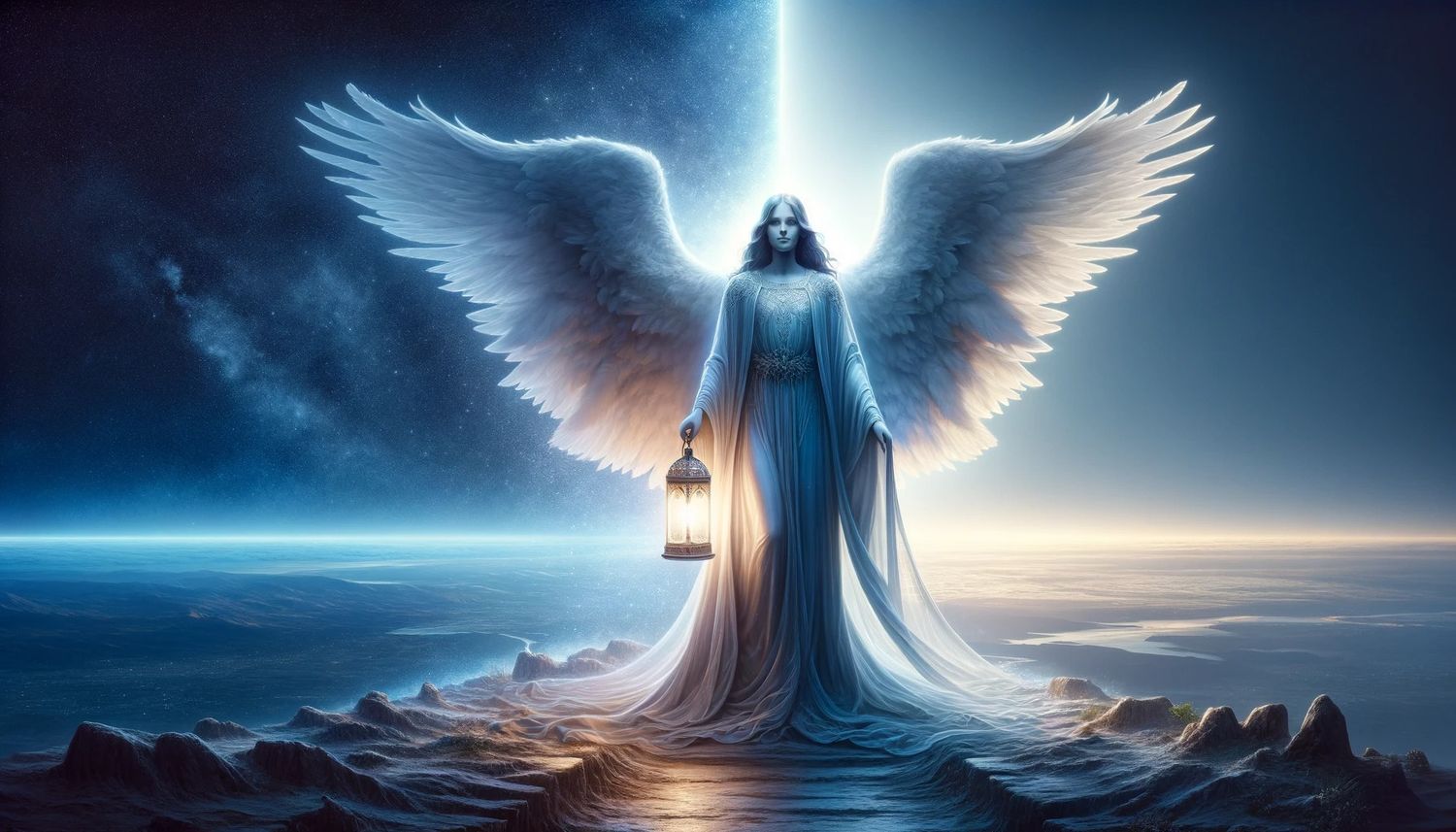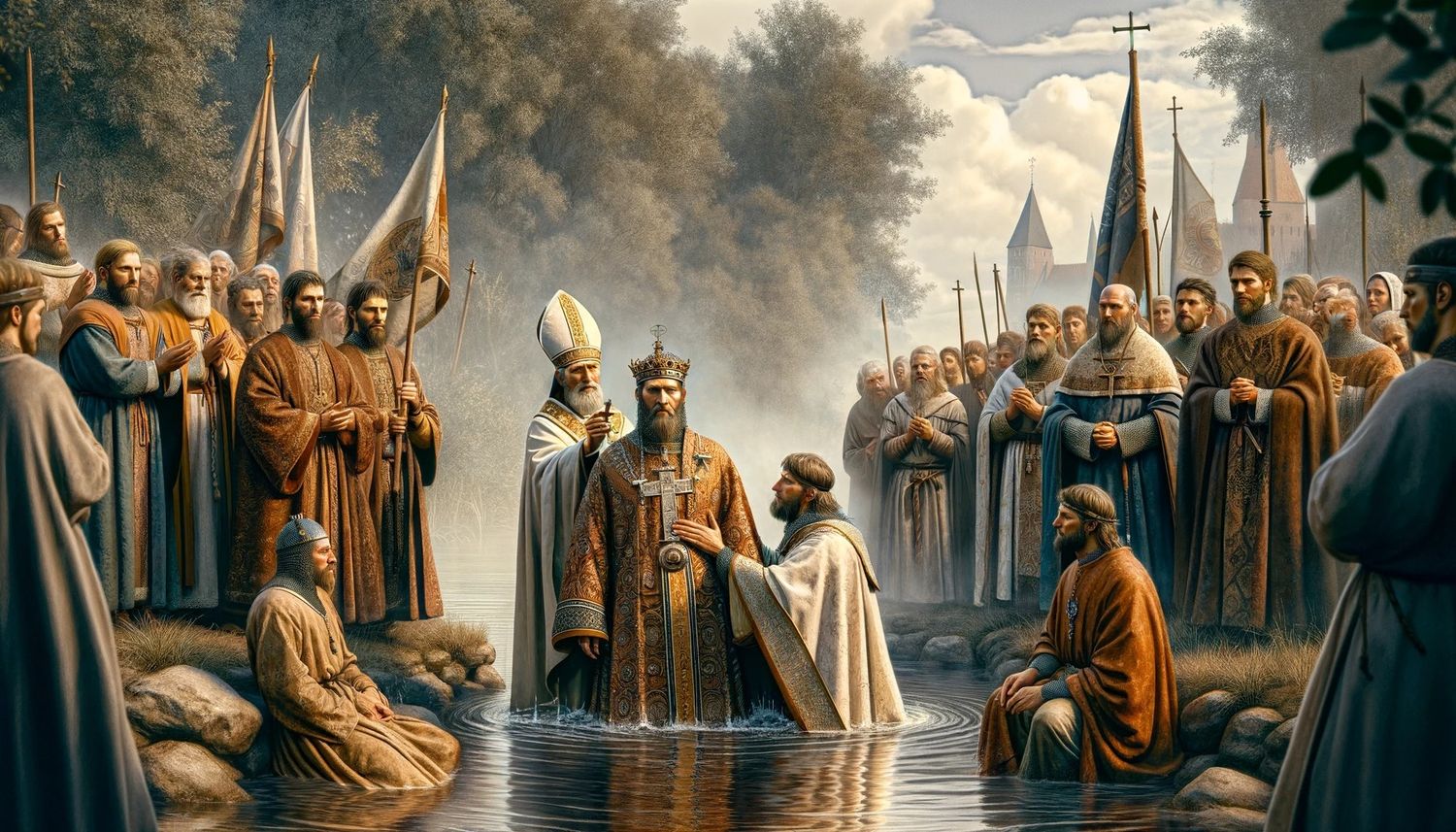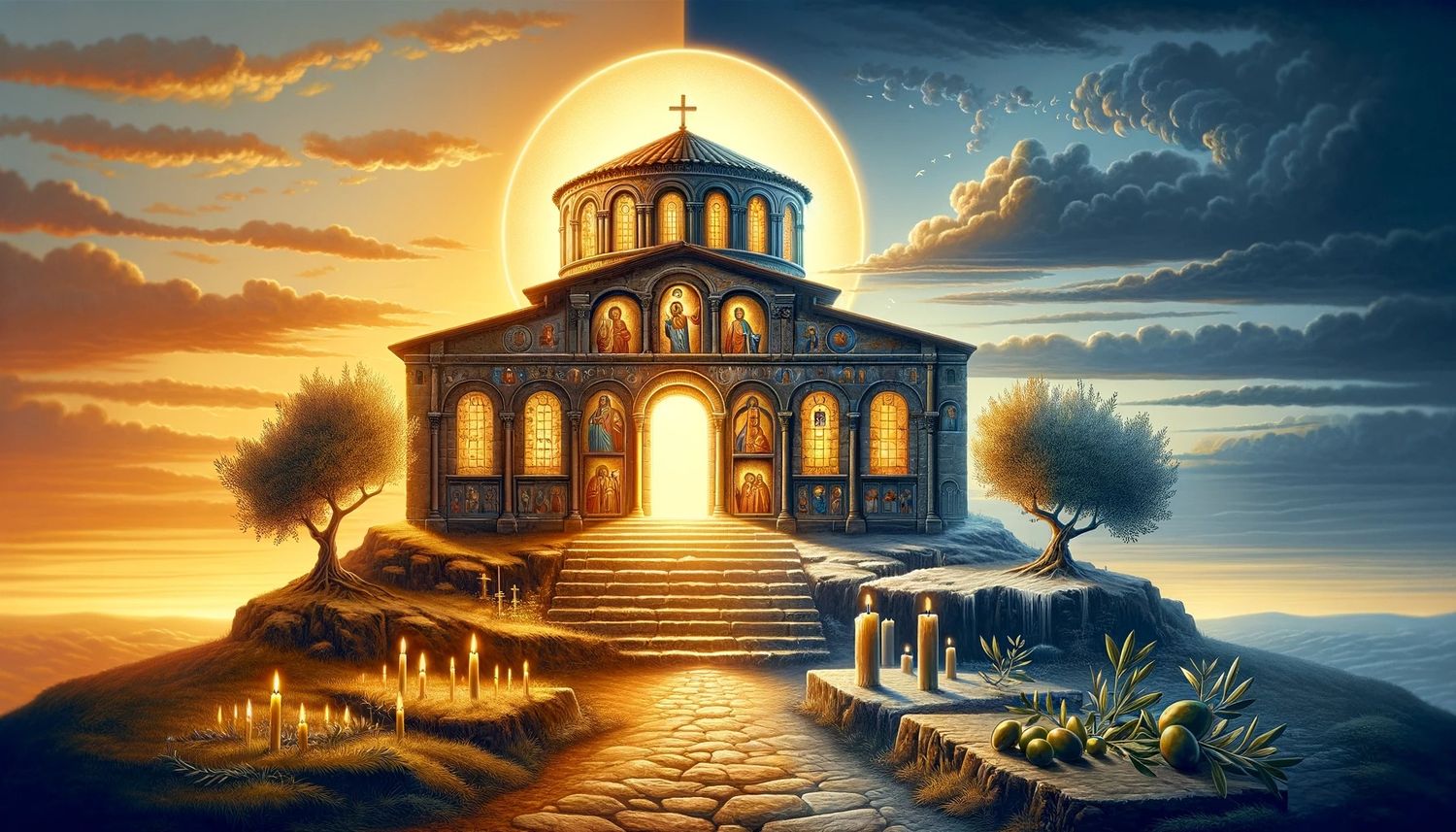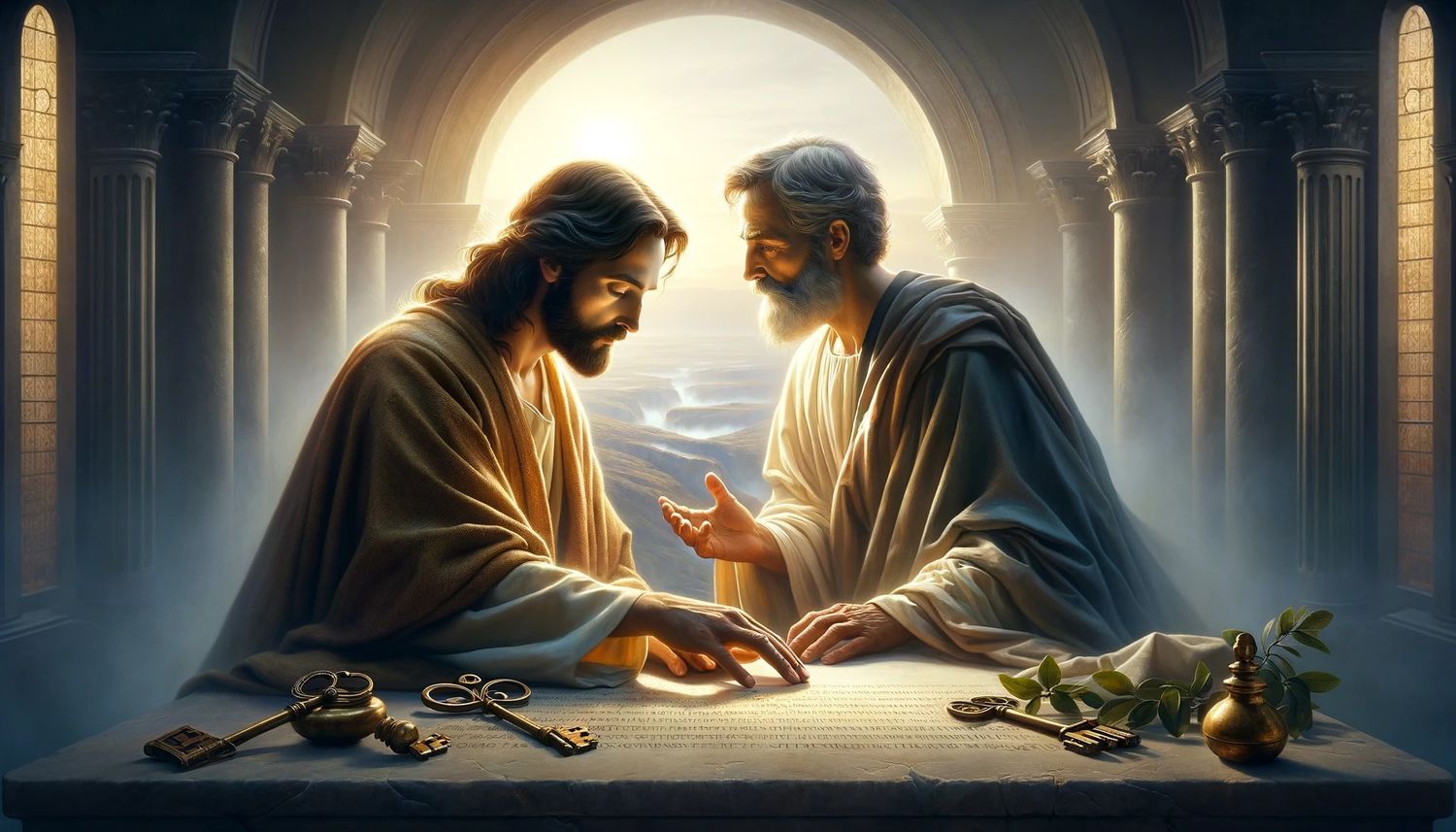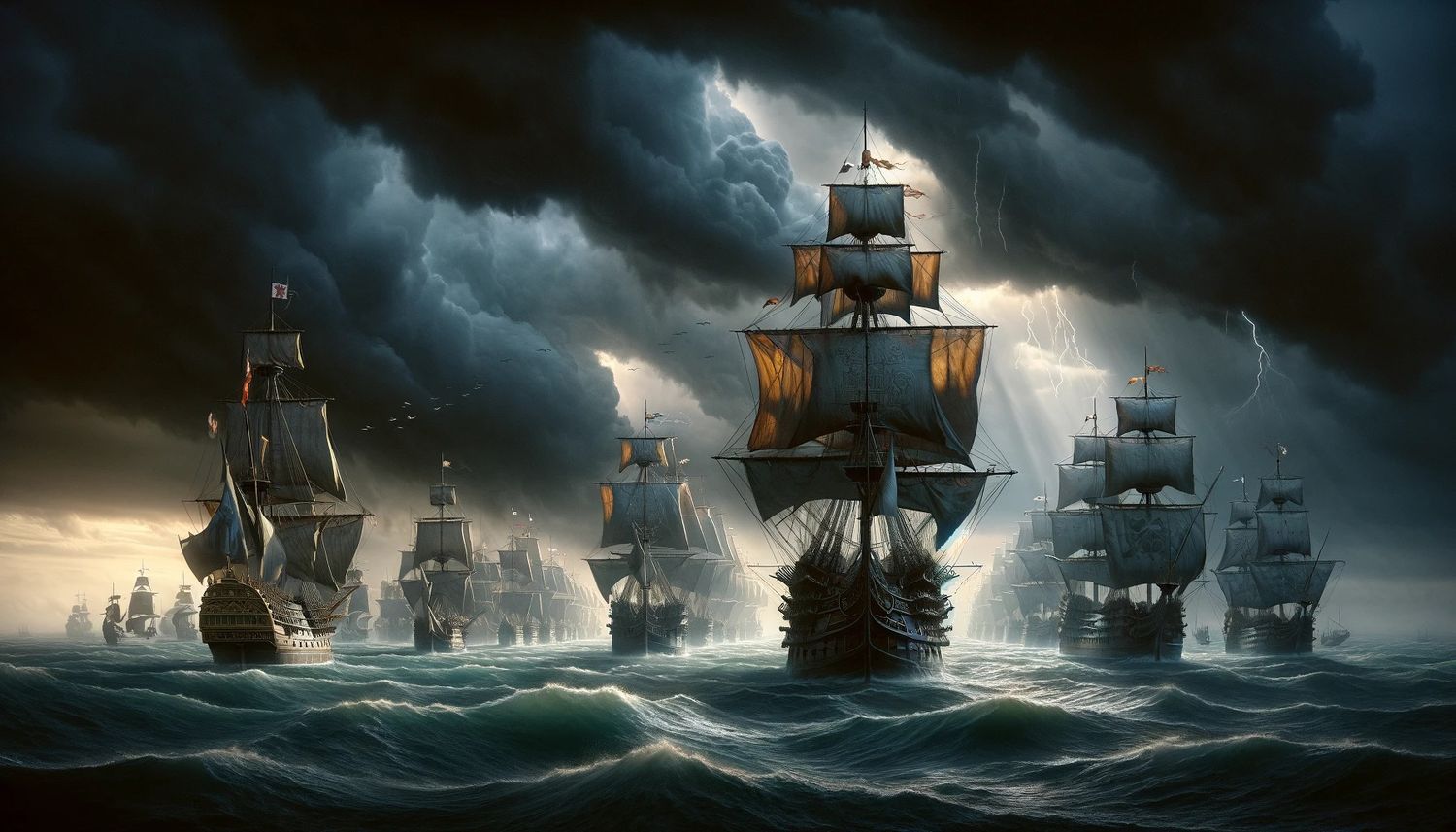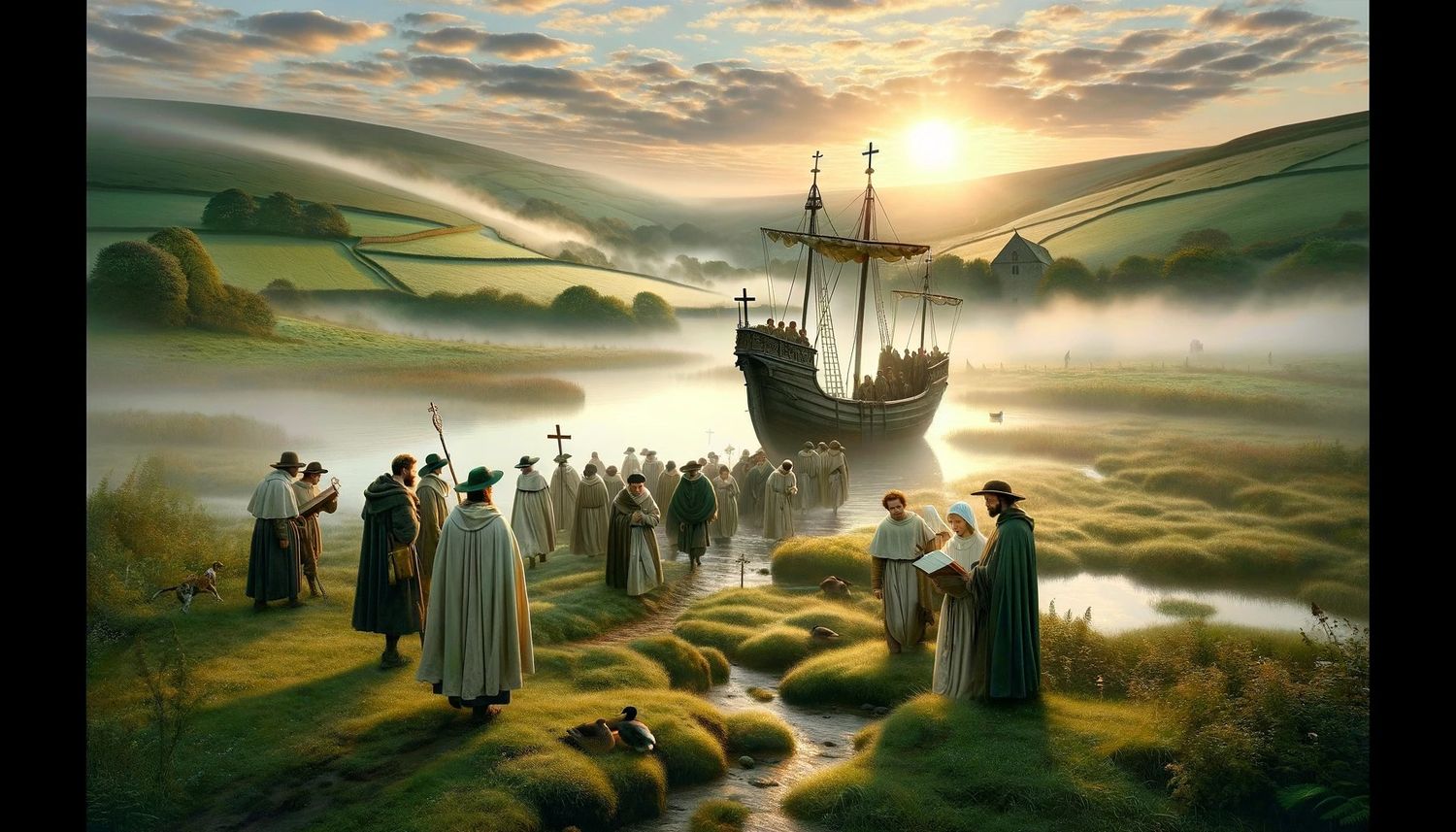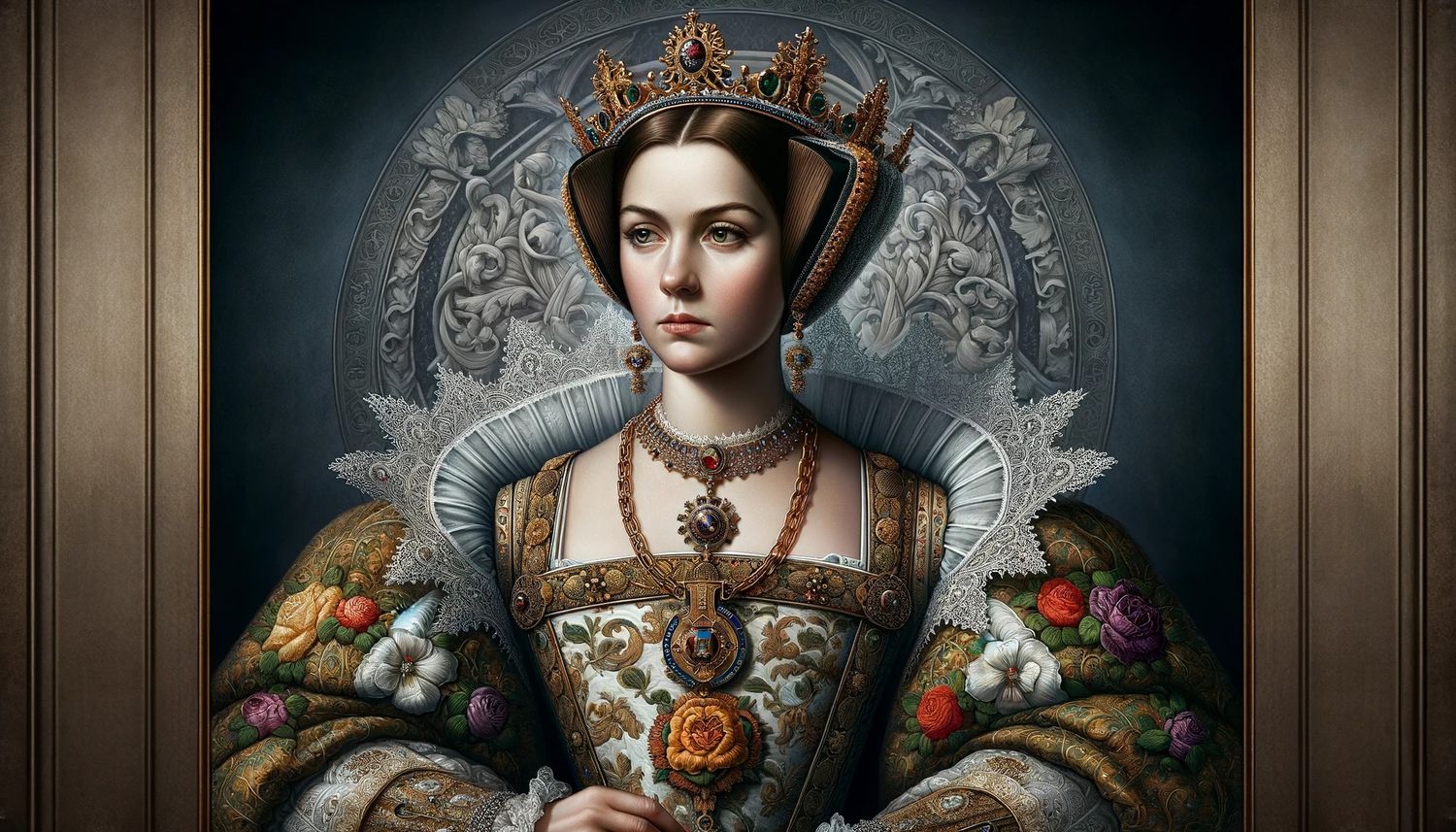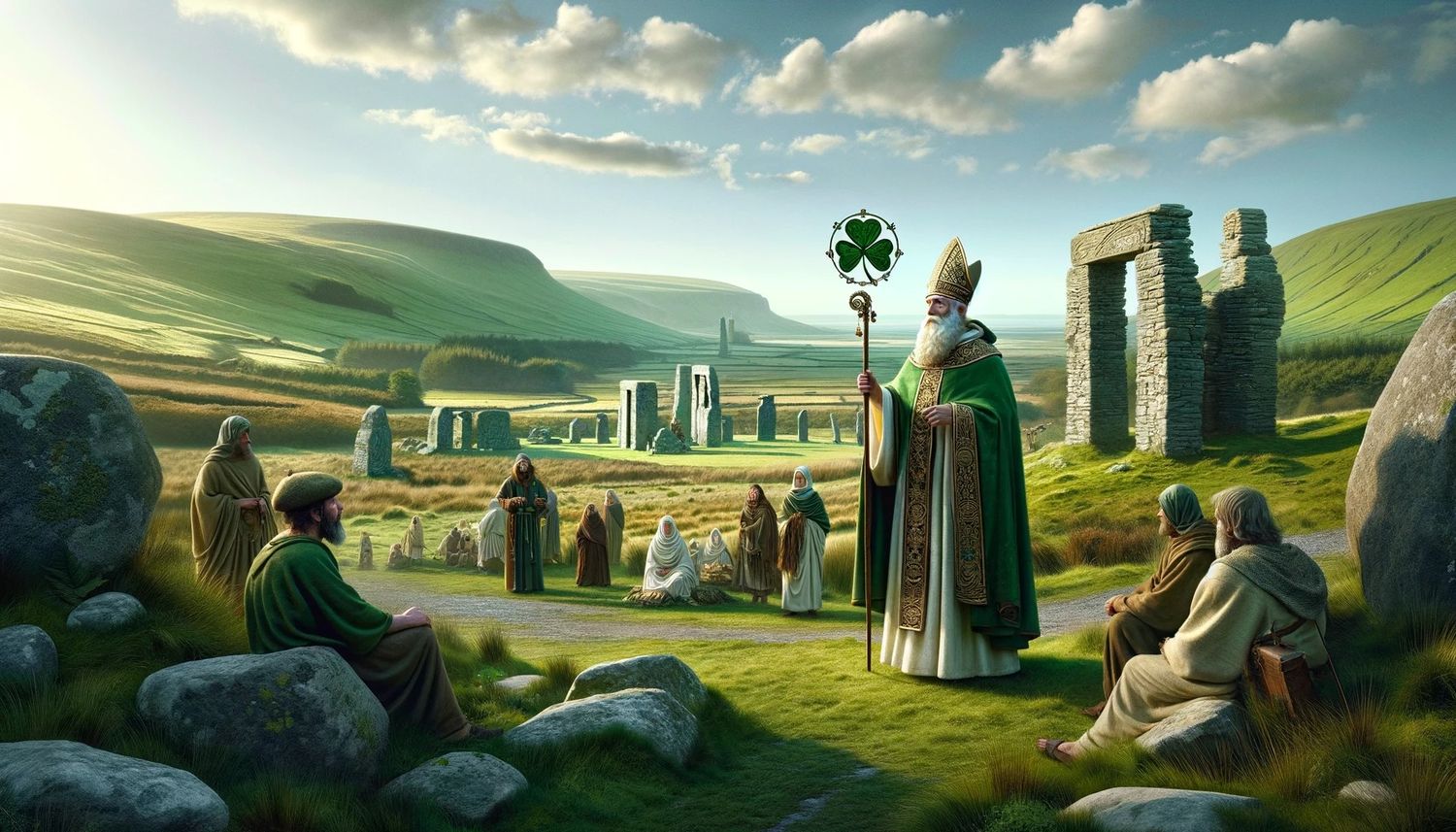Home>Theology and Spirituality>Who Is The Leader Of Catholicism
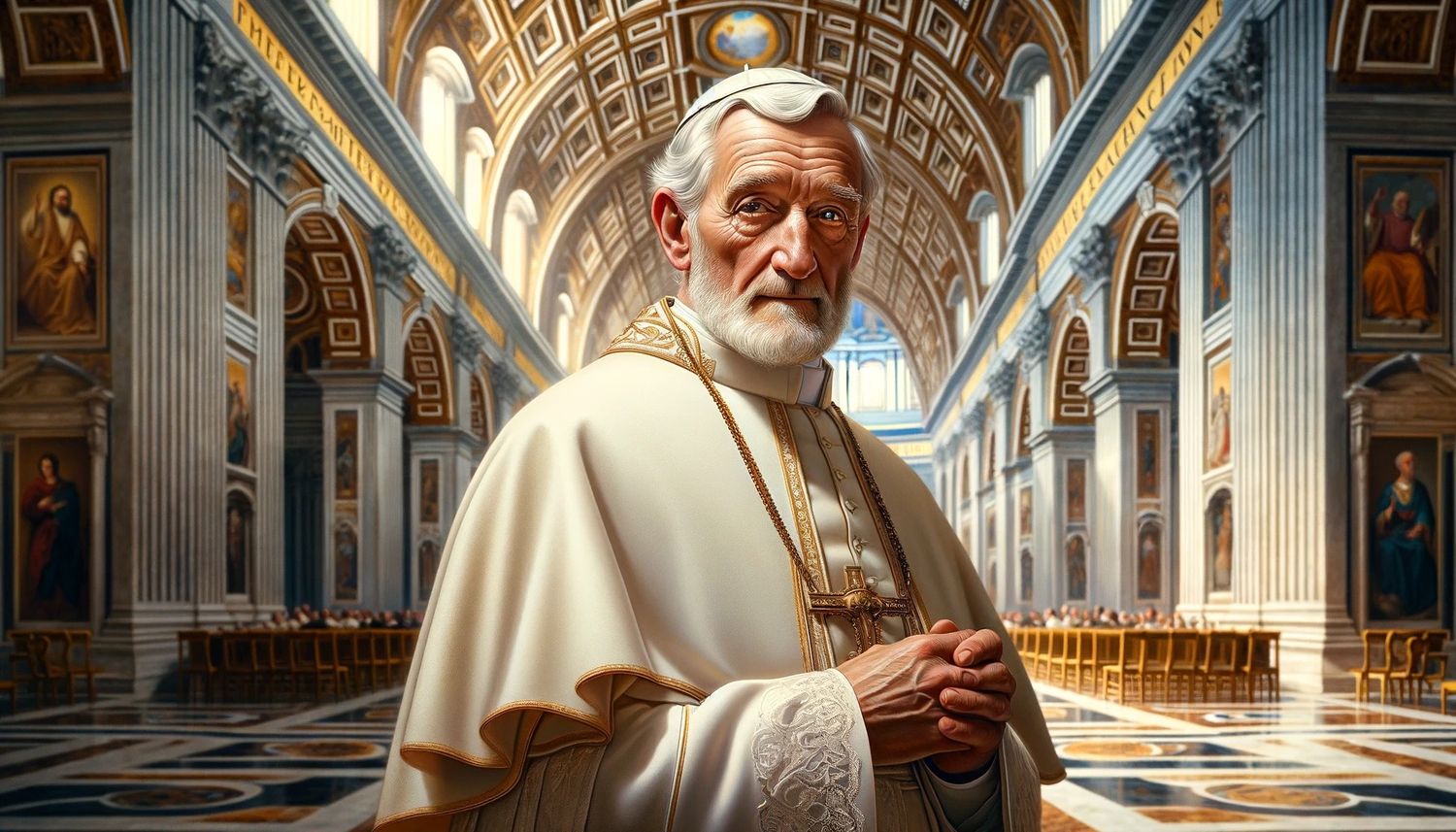

Theology and Spirituality
Who Is The Leader Of Catholicism
Published: February 15, 2024
Peter Smith, Editorial Director at Christian.net, combines deep insights into faith, politics, and culture to lead content creation that resonates widely. Awarded for his contributions to religious discourse, he previously headed a major organization for religious communicators, enhancing dialogue on faith's societal impacts.
Discover the leader of Catholicism and explore the theology and spirituality behind this influential religious figure. Gain insights into the role and impact of the leader in the Catholic faith.
(Many of the links in this article redirect to a specific reviewed product. Your purchase of these products through affiliate links helps to generate commission for Christian.net, at no extra cost. Learn more)
Table of Contents
Introduction
Catholicism, one of the oldest and most influential branches of Christianity, has a rich history and a profound impact on the lives of millions of people worldwide. At the heart of Catholicism lies the figure of the Pope, a spiritual leader revered by Catholics as the successor of Saint Peter and the earthly head of the Catholic Church. Understanding the role and significance of the Pope is essential to comprehending the structure and beliefs of Catholicism.
The leadership of the Catholic Church is deeply rooted in tradition, with a lineage that can be traced back to the early days of Christianity. The Pope, as the highest authority in the Catholic Church, plays a pivotal role in guiding the faithful, interpreting doctrine, and shaping the direction of the Church. Delving into the historical background of Catholicism and the evolution of papal authority provides valuable insights into the enduring influence of the Church and the profound reverence accorded to the Pope.
As we explore the significance of the Pope in Catholicism, it becomes evident that the role extends far beyond mere administrative duties. The Pope embodies spiritual leadership, serving as a symbol of unity and faith for Catholics around the world. His teachings, decisions, and actions carry immense weight, shaping the beliefs and practices of the faithful and influencing global discourse on matters of morality, social justice, and spirituality.
The selection and responsibilities of the Pope are shrouded in centuries-old traditions and rituals, adding a layer of mystique and solemnity to the process. Understanding the intricate procedures involved in choosing a new Pope and the weight of responsibility that accompanies the papal office provides a deeper appreciation for the significance of this esteemed position within the Catholic Church.
In the following sections, we will delve into the historical background of Catholicism, the role of the Pope in guiding the faithful, the selection and responsibilities of the Pope, and the current leader of Catholicism. Through this exploration, we aim to gain a comprehensive understanding of the profound influence and spiritual significance of the Pope within the context of Catholicism.
Read more: Who Is The Leader Of Baptist Church
Historical Background of Catholicism
Catholicism traces its origins to the teachings of Jesus Christ and the establishment of the early Christian Church. The term "Catholic" itself is derived from the Greek word "katholikos," meaning "universal," reflecting the Church's mission to encompass all people and spread the teachings of Christ to the ends of the earth.
The roots of Catholicism can be found in the first-century Christian community, particularly in the city of Rome. Over time, the Church in Rome gained prominence, owing to the city's status as the capital of the Roman Empire. The early Christian community in Rome, led by figures such as Saint Peter and Saint Paul, played a pivotal role in shaping the foundations of what would later become known as the Catholic Church.
The development of Catholic doctrine and the establishment of the Church's hierarchy unfolded over centuries, marked by theological debates, ecumenical councils, and the writings of influential theologians and Church fathers. The Council of Nicaea in 325 AD, for instance, addressed key doctrinal issues and laid the groundwork for the Nicene Creed, a statement of faith that remains central to Catholic belief.
The crowning of Emperor Constantine the Great in 312 AD and his subsequent conversion to Christianity marked a significant turning point for the Church, leading to the legalization of Christianity and the eventual establishment of Christianity as the state religion of the Roman Empire. This newfound status brought both opportunities and challenges for the Church, as it navigated its role in the broader societal and political landscape.
The early centuries of Catholicism were also marked by the expansion of the Church's influence beyond the borders of the Roman Empire, as missionaries carried the message of Christ to distant lands. The conversion of various kingdoms and peoples, coupled with the synthesis of Christian teachings with local customs and traditions, contributed to the rich tapestry of global Catholicism.
The historical background of Catholicism is characterized by a complex interplay of faith, politics, culture, and societal transformation. The enduring legacy of early Christian communities, the contributions of theologians and Church leaders, and the dynamic interactions with diverse cultures have all shaped the vibrant tapestry of Catholicism as it is known today.
The Role of the Pope in Catholicism
The role of the Pope in Catholicism is pivotal, encompassing spiritual, doctrinal, and administrative dimensions that resonate deeply with the beliefs and practices of the Catholic faithful. As the Bishop of Rome and the successor of Saint Peter, the Pope is regarded as the Vicar of Christ on Earth, entrusted with the spiritual guidance and pastoral care of the worldwide Catholic community.
At the core of the Pope's role is the preservation and interpretation of Catholic doctrine and tradition. The Pope is revered as the supreme authority in matters of faith and morals, wielding the power to define and clarify dogma, resolve theological disputes, and articulate the Church's teachings on a wide range of ethical and theological issues. This doctrinal authority is rooted in the belief that the Pope, guided by the Holy Spirit, possesses the charism of infallibility when speaking ex cathedra on matters of faith and morals, a concept that underscores the profound significance of the papal office in shaping the beliefs and practices of Catholics worldwide.
In addition to his doctrinal authority, the Pope serves as a unifying figure within the Catholic Church, fostering communion and solidarity among the diverse faithful spread across continents and cultures. Through his pastoral visits, encyclicals, and public addresses, the Pope offers spiritual guidance, encouragement, and moral leadership to Catholics, addressing contemporary challenges and affirming the timeless values of the Gospel. His role as a symbol of unity and continuity underscores the significance of the papacy in preserving the cohesive identity of the global Catholic community.
Furthermore, the Pope exercises administrative oversight over the Vatican City State, the Holy See, and the various departments of the Roman Curia, ensuring the effective governance and operation of the Church's central structures. This administrative dimension of the papal role encompasses diplomatic engagements with nations, the appointment of bishops and cardinals, and the stewardship of the Church's material and spiritual resources, reflecting the multifaceted responsibilities that accompany the papal office.
In essence, the role of the Pope in Catholicism transcends mere administrative functions, embodying spiritual leadership, doctrinal authority, and pastoral care that resonate deeply with the beliefs and practices of Catholics worldwide. The enduring influence of the papacy underscores its significance as a cornerstone of Catholic identity and unity, shaping the collective faith and aspirations of the global Catholic community.
Selection and Responsibilities of the Pope
The selection and responsibilities of the Pope are deeply entrenched in centuries-old traditions and rituals, reflecting the solemnity and gravity of the papal office within the Catholic Church. The process of selecting a new Pope, known as a papal conclave, unfolds with meticulous adherence to established protocols and spiritual discernment.
Upon the death or resignation of a Pope, the College of Cardinals, comprising high-ranking bishops and archbishops from around the world, convenes in the Vatican to participate in the papal conclave. This gathering serves as the forum for the election of the new Pope, with the cardinals sequestered within the Sistine Chapel, where they engage in prayer, reflection, and deliberation. The conclave is a profoundly spiritual undertaking, guided by the belief in the Holy Spirit's guidance in the selection of the successor to Saint Peter.
The cardinals engage in a series of voting rounds, with the balloting process accompanied by solemn rituals and oaths of secrecy. The successful candidate must receive a two-thirds majority vote, signifying a broad consensus among the cardinals. Once elected, the new Pope is asked whether he accepts the office and what name he will take, after which he assumes the papal responsibilities and is introduced to the world from the balcony of St. Peter's Basilica.
The responsibilities of the Pope are multifaceted, encompassing spiritual, doctrinal, pastoral, and administrative dimensions. As the spiritual leader of the Catholic Church, the Pope is entrusted with preserving and interpreting the deposit of faith, ensuring the continuity of Catholic doctrine, and articulating the Church's teachings on matters of faith and morals. His role as the Vicar of Christ underscores the profound spiritual authority vested in the papal office, shaping the beliefs and practices of Catholics worldwide.
Furthermore, the Pope assumes pastoral responsibilities, offering guidance, encouragement, and moral leadership to the global Catholic community. His pastoral visits, public addresses, and encyclicals serve as sources of inspiration and spiritual nourishment for Catholics, addressing contemporary challenges and affirming the enduring values of the Gospel. The Pope's role as a unifying figure fosters communion and solidarity among the diverse faithful, reinforcing the cohesive identity of the worldwide Catholic Church.
Administratively, the Pope oversees the governance of the Vatican City State, the Holy See, and the Roman Curia, ensuring the effective management of the Church's central structures and resources. His diplomatic engagements with nations, appointment of bishops, and stewardship of the Church's material and spiritual assets reflect the comprehensive scope of his administrative responsibilities.
In essence, the selection and responsibilities of the Pope epitomize the profound spiritual and administrative dimensions of the papal office, underscoring its enduring significance as the cornerstone of Catholic leadership and unity.
Current Leader of Catholicism
The current leader of Catholicism, also known as the Roman Catholic Church, is His Holiness Pope Francis. Born Jorge Mario Bergoglio on December 17, 1936, in Buenos Aires, Argentina, Pope Francis ascended to the papacy on March 13, 2013, following the resignation of Pope Benedict XVI. His election marked several historic firsts within the Catholic Church, as he became the first Jesuit Pope, the first from the Americas, and the first from the Southern Hemisphere.
Pope Francis, known for his humility, compassion, and commitment to social justice, has garnered global attention for his progressive stance on various issues, including poverty, climate change, and the plight of marginalized communities. His emphasis on mercy, inclusivity, and the Church's mission to serve the vulnerable has resonated deeply with Catholics and non-Catholics alike, earning him widespread admiration and respect.
Throughout his pontificate, Pope Francis has prioritized outreach to the marginalized and disenfranchised, advocating for the alleviation of poverty, the welcoming of migrants and refugees, and the promotion of dialogue and reconciliation in conflict-affected regions. His pastoral visits to diverse communities around the world have underscored his hands-on approach to shepherding the faithful and engaging with the pressing realities faced by individuals and societies.
Pope Francis has also been a vocal proponent of environmental stewardship, issuing the groundbreaking encyclical "Laudato Si'" in 2015, which called for urgent action to address climate change and environmental degradation. His advocacy for ecological responsibility and care for creation has positioned the Catholic Church as a prominent voice in global discussions on environmental sustainability and the ethical dimensions of environmental issues.
In addition to his emphasis on social and environmental concerns, Pope Francis has sought to reform and revitalize the Church's structures and governance, advocating for greater transparency, accountability, and inclusivity. His efforts to address issues of clerical abuse and misconduct, as well as his calls for a more synodal and participatory Church, reflect his commitment to fostering a culture of integrity and responsiveness within the ecclesial community.
Pope Francis' leadership has been characterized by a spirit of openness, dialogue, and engagement with diverse perspectives, reflecting his vision of a Church that is compassionate, merciful, and attuned to the needs of the contemporary world. His tenure as the spiritual leader of the Catholic Church continues to inspire reflection, dialogue, and action within the Church and beyond, shaping the collective aspirations and witness of Catholics globally.
As the 266th Pope and the Bishop of Rome, Pope Francis carries forward the rich legacy of the papal office, embodying the spiritual leadership, pastoral care, and global influence that have defined the papacy for centuries. His leadership serves as a testament to the enduring relevance and impact of the papal office within the dynamic tapestry of global Catholicism.
Read more: Who Is The Leader Of The 12 Apostles
Conclusion
In conclusion, the leadership of Catholicism, epitomized by the role of the Pope, stands as a testament to the enduring influence and spiritual significance of the Catholic Church. The historical background of Catholicism, rooted in the teachings of Jesus Christ and the early Christian community, has evolved over centuries, shaping the beliefs, practices, and global impact of the Church. The role of the Pope in Catholicism encompasses spiritual, doctrinal, pastoral, and administrative dimensions, reflecting the multifaceted responsibilities and profound authority vested in the papal office.
The selection and responsibilities of the Pope, characterized by centuries-old traditions and rituals, underscore the solemnity and gravity of the papal office within the Catholic Church. The papal conclave, with its emphasis on prayer, discernment, and the guidance of the Holy Spirit, serves as a poignant reminder of the spiritual underpinnings of papal succession. The Pope's responsibilities, spanning doctrinal preservation, pastoral care, and administrative oversight, highlight the comprehensive scope of his role as the spiritual leader and shepherd of the global Catholic community.
The current leader of Catholicism, Pope Francis, embodies a spirit of humility, compassion, and advocacy for social justice, resonating with Catholics and non-Catholics alike. His emphasis on mercy, inclusivity, and engagement with contemporary issues has positioned the Catholic Church as a prominent voice in global conversations on matters of social concern, environmental stewardship, and ethical governance. Pope Francis' leadership reflects a commitment to fostering a Church that is responsive to the needs of the world, characterized by dialogue, compassion, and a preferential option for the marginalized.
In essence, the leadership of Catholicism, as exemplified by the Pope, continues to shape the collective faith, witness, and aspirations of Catholics worldwide. The enduring influence of the papacy underscores its significance as a cornerstone of Catholic identity and unity, guiding the faithful and engaging with the pressing realities of the contemporary world. As the Catholic Church navigates the complexities of the modern era, the leadership of the Pope remains a source of inspiration, guidance, and spiritual continuity, reflecting the timeless mission of the Church to proclaim the Gospel and serve humanity with love and compassion.
